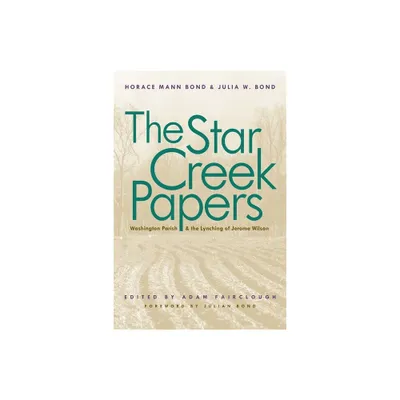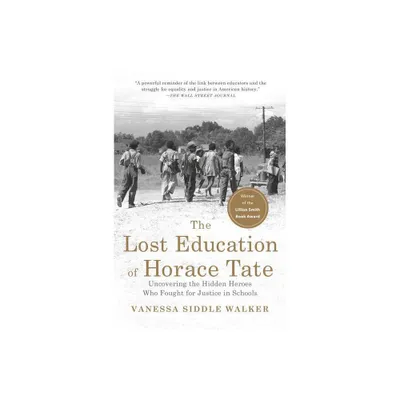Home
Horace Mann's Troubling Legacy: The Education of Democratic Citizens
Loading Inventory...
Barnes and Noble
Horace Mann's Troubling Legacy: The Education of Democratic Citizens
Current price: $49.99


Barnes and Noble
Horace Mann's Troubling Legacy: The Education of Democratic Citizens
Current price: $49.99
Loading Inventory...
Size: OS
*Product Information may vary - to confirm product availability, pricing, and additional information please contact Barnes and Noble
A righteous reformer committed to the power of education, Horace Mann became a national figure by championing the common school movement. Mann's message, which he preached at every opportunity, was that universal public education was the only means to transform America's disorderly masses into a disciplined, judicious republican citizenry, thereby removing the dangers of anarchy and class warfare.
In his new look at Mann's work and thought, Bob Pepperman Taylor shows that Mann's ideas on civic education have had a lasting impact on the way that we still think today about education and its relation to our civic life. Written from the perspective of democratic theory and practice, Taylor's work reassesses Mann's philosophy of civic education and deeply resonates with today's pervasive and highly political debates about the role of education.
By conceiving of public schooling as serving primarily political ends, this nineteenth-century reformer fostered an enduring tension between educational values and political purposes. Taylor contends that Mann's approach to civic education marginalized the role of schools in training the intellect, and that this anti-intellectual component has been retained in the current model of schooling in the United States. He contends that Mann's schooling model promotes moral certainty and political consensus over intellectual doubt and political disagreement—an imbalance that erodes and weakens both educational and democratic ends.
By considering Mann's unique influence as a theorist of civic education, Taylor argues, we find both his greatest strengths and most significant weaknesses. And when we take Mann seriously as a contributor to American political thought, we find that the challenge he presents is more significant than concerns about the lack of originality or the unscientific nature of some of his ideas.
Ultimately, Mann can tell us a great deal about the very best in our educational tradition, as well as help us see some of its significant flaws and show us how both strengths and weaknesses have played out in our current public and higher systems of education. By examining how Mann was the first to articulate a cohesive vision of the relationship between civic education and democratic practice, Taylor demonstrates that Mann belongs among the key founders of the American political tradition.
In his new look at Mann's work and thought, Bob Pepperman Taylor shows that Mann's ideas on civic education have had a lasting impact on the way that we still think today about education and its relation to our civic life. Written from the perspective of democratic theory and practice, Taylor's work reassesses Mann's philosophy of civic education and deeply resonates with today's pervasive and highly political debates about the role of education.
By conceiving of public schooling as serving primarily political ends, this nineteenth-century reformer fostered an enduring tension between educational values and political purposes. Taylor contends that Mann's approach to civic education marginalized the role of schools in training the intellect, and that this anti-intellectual component has been retained in the current model of schooling in the United States. He contends that Mann's schooling model promotes moral certainty and political consensus over intellectual doubt and political disagreement—an imbalance that erodes and weakens both educational and democratic ends.
By considering Mann's unique influence as a theorist of civic education, Taylor argues, we find both his greatest strengths and most significant weaknesses. And when we take Mann seriously as a contributor to American political thought, we find that the challenge he presents is more significant than concerns about the lack of originality or the unscientific nature of some of his ideas.
Ultimately, Mann can tell us a great deal about the very best in our educational tradition, as well as help us see some of its significant flaws and show us how both strengths and weaknesses have played out in our current public and higher systems of education. By examining how Mann was the first to articulate a cohesive vision of the relationship between civic education and democratic practice, Taylor demonstrates that Mann belongs among the key founders of the American political tradition.


















